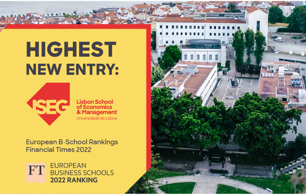In the Future of Jobs Report regularly published by the World Economic Forum on the skills that companies most seek in professionals, the competencies of innovative thinking, creativity, and originality are prominently featured in the top 10. The topic of skills related to creativity and innovation is not new, but it has gained increasing prominence in organizations.
The benefits of a creative and innovative culture in companies and organizations are undeniable and are not just limited to business development, improving customer relations, and identifying new opportunities. Creativity and innovation also promote initiative and experimentation by employees focused on continuous improvement, a more agile work model, and a horizontal hierarchy where everyone feels comfortable contributing and sharing ideas.
As part of the Sustainability: A Corporate Journey Program of ISEG-Exec Education, which we conducted in partnership with GRACE, we had the participation of one of the founders of the Manicómio Project, Sandro Resende. Manicómio is a social hub, art gallery, workspace that promotes the work of artists who have experienced or are still experiencing mental illness and is also a coworking space where freedom of expression is part of its DNA. Manicómio has already won creativity contests, received international awards, and works with brands such as Central de Cervejas, Fidelidade, Herdade da Malhadinha Nova, and Arcádia. What lessons and teachings does this project bring to companies and organizations? The ability of these artists to produce creative works is intimately related to the degree of freedom and trust given to them, the way they are integrated into a space where individuality, difference, and authenticity of each person is valued.
Traditionally, the term creativity has always been associated with artistic activity. A creative mind is inspired to look at complex problems and find non-linear solutions that other less creative minds cannot. It is the possibility of seeing things differently and creating solutions for all kinds of problems and challenges. It is not limited to art or writing, although that is where we traditionally find it. Art leaves many lessons for business management, one of which is that of legacy: "life is short, art is long." People change, but the purpose of companies remains, or at least should endure for a long time.
Published in RH Magazine







